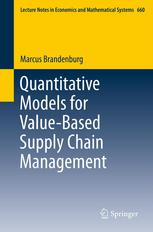

Most ebook files are in PDF format, so you can easily read them using various software such as Foxit Reader or directly on the Google Chrome browser.
Some ebook files are released by publishers in other formats such as .awz, .mobi, .epub, .fb2, etc. You may need to install specific software to read these formats on mobile/PC, such as Calibre.
Please read the tutorial at this link: https://ebookbell.com/faq
We offer FREE conversion to the popular formats you request; however, this may take some time. Therefore, right after payment, please email us, and we will try to provide the service as quickly as possible.
For some exceptional file formats or broken links (if any), please refrain from opening any disputes. Instead, email us first, and we will try to assist within a maximum of 6 hours.
EbookBell Team

0.0
0 reviewsSupply chain management (SCM) strives for creating competitive advantage and value for customers by integrating business processes from end users through original suppliers. However, the question of how SCM influences the value of a firm is not fully answered. Various conceptual frameworks that explain the coherence of SCM and company value, comprehended as value-based SCM, are well accepted in scientific research, but quantitative approaches to value-based SCM are found rather seldom. The book contributes to this research gap by proposing quantitative models that allow for assessing influences of SCM on the value of a firm. Opposed to existing models that limit the observation to chosen facets of SCM or selected value drivers, this holistic approach is adequate to • reflect configurational and operational aspects of SCM, • cover all phases of the product life cycle, • financially compare value impacts of profitability-related and asset-related value drivers, and • assess influences of dynamics and uncertainties on company value.